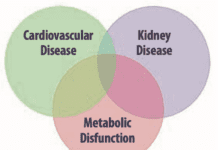New results from the largest-ever clinical trial of ginkgo biloba add to the mounting evidence that Americans who spend $250 million annually on the herbal supplement are probably wasting their money: Researchers conducting the Ginkgo Evaluation of Memory (GEM) study report that twice-daily doses of 120 milligrams of ginkgo extract did no better than a placebo in slowing older adults rate of cognitive decline. Earlier GEM findings had debunked ginkgos purported protective benefit against Alzheimers and overall dementia, as well as most cardiovascular benefits (see the February 2010 Healthletter).
Ginkgo biloba is marketed widely and used with the hope of improving, preventing or delaying cognitive impairment associated with aging and neurodegenerative disorders such as Alzheimer disease, noted Beth E. Snitz, PhD, of the University of Pittsburgh, and colleagues in the Journal of the American Medical Association (JAMA). Indeed, in the United States and particularly in Europe, ginkgo biloba is perhaps the most widely used herbal treatment consumed specifically to prevent age-related cognitive decline.
The randomized, double-blind, placebocontrolled trial-considered the gold standard of medical research-enrolled 3,069 participants, ages 72 to 96, at six academic medical centers. At the beginning of the study, participants had either normal cognition or mild cognitive impairment. Snitz and colleagues sought to determine whether the popular herbal supplement, though already shown ineffective in preventing the incidence of Alzheimers and dementia, could slow the rate of cognitive decline.
Participants were randomly assigned to receive either ginkgo or identical doses of a placebo. Over an average followup of a little more than six years, researchers found no evidence for an effect of ginkgo on memory, language, attention, visuospatial abilities and executive functions. No benefit was seen, either, when results were analyzed by age, sex, race, education, genetic markers for dementia or initial cognitive status.
Snitz and colleagues concluded, In sum, we find no evidence that ginkgo biloba slows the rate of cognitive decline in older adults. They noted that the findings are consistent with previous smaller studies and with a 2009 review of the scientific evidence.
In an interview, study co-author Steven T. DeKosky, MD, of the University of Virginia added that ginkgo biloba is pretty safe and its cheap, and its not like some of the things that are either really expensive or dangerous or interfere with some other meds you might be taking. But Ive got no good reason to suggest you continue to take it beyond your own blind faith.
TO LEARN MORE: JAMA, Dec. 23/30, 2009; abstract at jama.ama-assn.org/cgi/content/abstract/ 302/24/2663.























